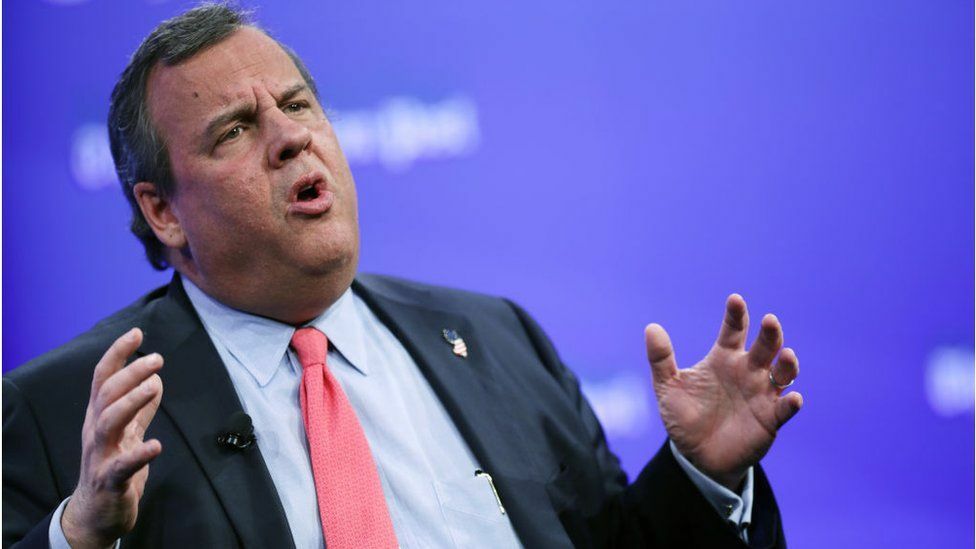Christie enters 2024 race targeting Trump, hindered by low Republican support

Former New Jersey Governor Chris Christie has entered the 2024 race for the White House with one primary goal: to hinder Donald Trump’s campaign. However, Christie’s low popularity among Republicans could obstruct his efforts to directly challenge Trump. Christie’s unsuccessful bid for the 2016 Republican presidential nomination saw him endorse Trump early on, but he now seeks to bring the current front-runner down and establish himself as the winning candidate.
“A lot of people are going to be gunning for Trump,” states Republican strategist and former party communication director Doug Heye. “There’s going to be a battle royal where everybody’s trying to throw Andre the Giant out of the ring.” If this occurs, Heye believes the entire leadership race would be reset.
Christie officially filed the paperwork for his White House bid on Tuesday, but as it stands, he is far from being a leading candidate. Public opinion polls reveal that only Trump and Florida Governor Ron DeSantis have widespread support. According to a Fox News national survey of Republicans released last week, Christie had the backing of less than 1% of respondents, while a Quinnipiac Poll placed him at 2%. In each poll, Trump led the field by over 30%.
To alter this dynamic, Christie must seize limited opportunities, such as the series of upcoming Republican presidential debates beginning in late August. In 2016, Christie used a debate to criticise Florida Senator Marco Rubio, who was rising in the polls at the time, as too programmed and robotic. Christie’s challenge will be to employ his sharp tongue and assertive attitude to achieve similar success against Trump.
“You better have somebody on that stage who can do to him what I did to Marco because that’s the only thing that’s going to defeat Donald Trump,” Christie said in March. “And that means you have to be fearless because he will come back right at you.”
Republican strategist Doug Heye believes Christie has the political instincts and talent to create a similar debate moment this time. “Christie is not somebody who’s coming in merely to pad speech fees, do book tours and all those other things that people who really have no chance get into the race to do,” he says. “Clearly he’s somebody who potentially could pop Trump’s balloon.”
However, Christie may not get the opportunity. The Republican Party has set relatively strict requirements to qualify for its debates, and even if Christie qualifies, Trump has reportedly been considering skipping the early debates.
Outside of the debates, Christie’s strategy relies on courting voters in New Hampshire, the state that follows Iowa on the Republican presidential primary calendar. He faces an uphill battle there, as a recent survey of Republican voters in the state showed Christie with a net favourability of negative 44%, the worst of any announced or potential candidates. A majority of the voters in that state know him – and don’t like him.
Polls indicate that Republican voters do like Trump, reflecting a party transformed by Trump and his populist style of politics. Christie contributed to that shift in February 2016 when he became the most prominent establishment Republican politician to support the unconventional candidate at the time.
The endorsement sparked rumours that Christie would become Trump’s vice-presidential running mate or join his administration as a Cabinet official. However, such offers never materialised, and over time, Christie – who initially said he was “happy to be on team Trump” – began criticising his former ally.
In the months after Trump left office in 2021, following the 6 January attack by the president’s supporters on the US Capitol and months of denying his electoral defeat, Christie’s views on Trump have become pointed and fiery. “Donald Trump is a TV star, nothing more, nothing less,” he said in New Hampshire in April. “Let me suggest to you that in putting him back in the White House, the reruns will be worse than the original show.”
Republican voters may not want what Christie is offering as an alternative. His final years in office as New Jersey governor were marred by controversy. In 2017, after his unsuccessful presidential bid, he was photographed lounging with family on an otherwise empty New Jersey state beach that had been closed to the public during a budget dispute between the governor and state. That episode made the governor an object of national ridicule.
By entering the 2024 presidential race, Christie hopes to rewrite his political legacy. But to do so, he must first overcome Donald Trump.
Latest Thailand News
Follow The Thaiger on Google News:


























